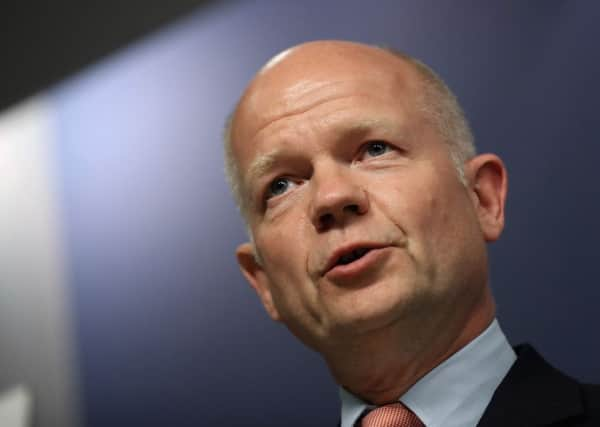William Hague could have been PM if he had lost 1997 leadership race


The then Richmond MP beat the former Chancellor for the party’s top job after John Major resigned following Tony Blair and New Labour’s landslide victory.
In a wide-ranging interview to promote his autobiography Kind of Blue: A Political Memoir, Mr Clarke says he was “not crushed” by his three leadership defeats at the hands of Mr Hague, Iain Duncan Smith in 2005 and then David Cameron four years later.
Advertisement
Hide AdAdvertisement
Hide Ad“The worst thing William ever did was beat me,” said Mr Clarke who served as Justice Secretary in the coalition alongside Mr Hague who was Foreign Secretary from 2010-14.
“He could have taken over in 2001. (Tony) Blair was beatable in 2005.
“He could still have been Prime Minister now if he’d left me take the flak.”
The Tory grandee, 76, says he’s flattered to be described as one of the best premiers that Britain has never had.
Advertisement
Hide AdAdvertisement
Hide Ad“It’s quite a decent club,” he reflected. “Roy Jenkins, Geoffrey Howe, Denis Healey, Iain Macleod, Michael Heseltine. There’s no way of knowing whether any of them would have been any good.”
In his book, Mr Clarke says it is Theresa May’s good fortune that the media failed to note the wider significance of her one speech during the EU referendum where she made the Remain case.
“It was the best and most authoritative speech that I had read about the security case for our membership, because she had expert knowledge and had been a defender of the arrangements we had established,” he writes.
“It also went on to make an excellent case for the economic benefits of remaining in the EU. The result was that, like every other serious pro-European campaigner, she had found that no platform of any kind had taken the slightest notice of her views. However, the impression that she had been a lukewarm pro-European proved of enormous benefit to her in her subsequent leadership election.